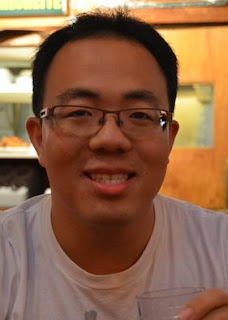 Today our fellowship studied Romans 12 with it's wonderful word-picture of what Christian community is to look like.
Today our fellowship studied Romans 12 with it's wonderful word-picture of what Christian community is to look like. Afterwards, it occurred to me that since the section starts with a call to "not be conformed to the world" that the positive commands that follow are probably setting up the contrast with what "the world" might say is the way to live. So, in the spirit of C.S. Lewis' Screwtape Letters*, here is my version of what "the world" might suggest as the way to live if "it" wrote a note about how to live in contrast to Romans 12:3-23:
"Above all, remember the status you have achieved and how hard you worked to get it (and how much more you would have achieved by now if those others hadn't blocked you). Keep watching out for yourself since no one else will; you are responsible for your own destiny. Don't let others get in the way of your goals. Remember that relationships are valuable only in so far as they are useful for your ends.
Learn to be pragmatic. What works is more important than worrying about obtuse issues of right and wrong. Be focused on your goals and make connections with the people who can help you achieve them. Make connections with those who can make you look good and don't waste your time with others. Be driven, move fast, and trust only yourself. Don't worry about other people; let them take care of themselves.
Make sure you get back at those who oppose you so everyone knows they can't use you. Beware when others are rejoicing because it probably means they know something you don't. When others are having a hard time, that's the time for you to smile because you can benefit from that. Remember that the important thing is to get your way. Take advantage of your status, look for ways to manipulate circumstances for your ends, and don't hesitate to use underlings for your purposes. You are #1; you are superior!
If someone messes with you, get back at them fast. Make sure everyone knows you won't be pushed around. As far it depends on you, don't hesitate to stir up trouble if it can help you gain power. When your enemy is down, that's the time to pounce and crush him so you come out on top.
Whatever you do, don't be overcome by "kindly sentiments" but suppress them in order to get what you want."
Thanks be to God we are called to a different vision!
*http://www.squidoo.com/screwtape-letters?utm_source=google&utm_medium=imgres&utm_campaign=framebuster





